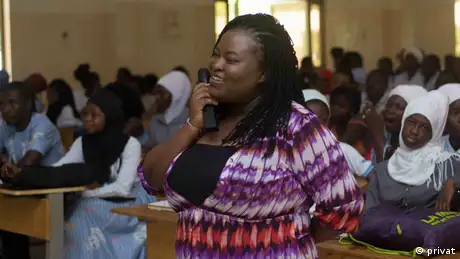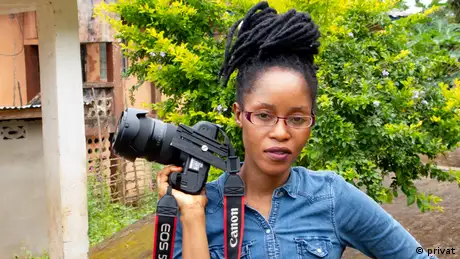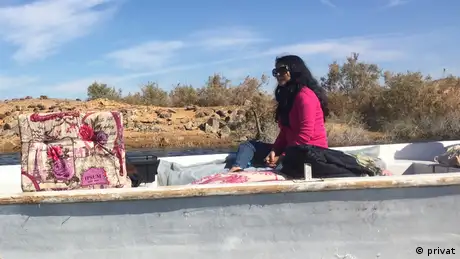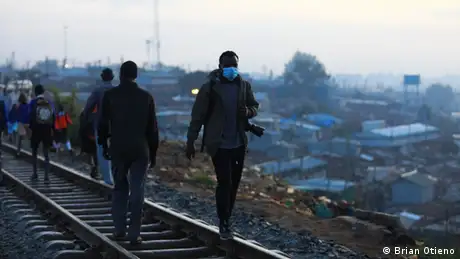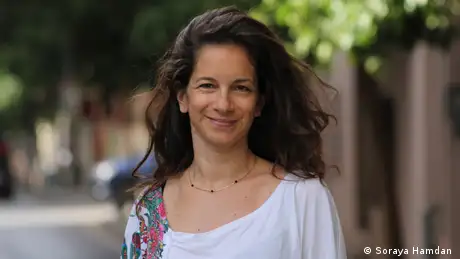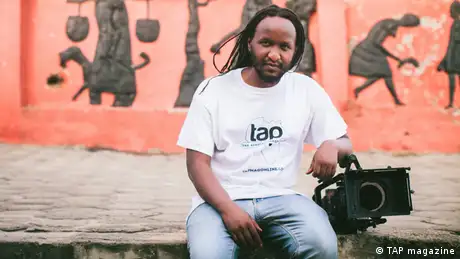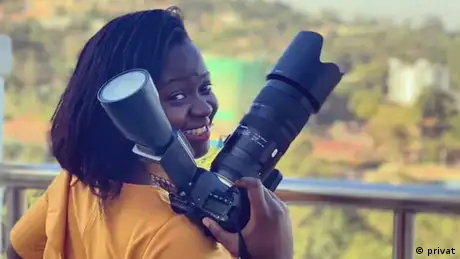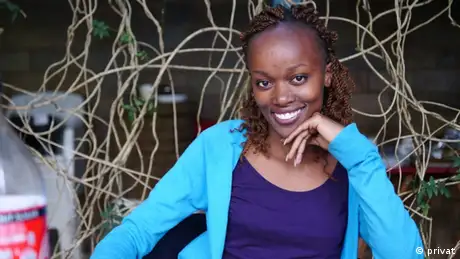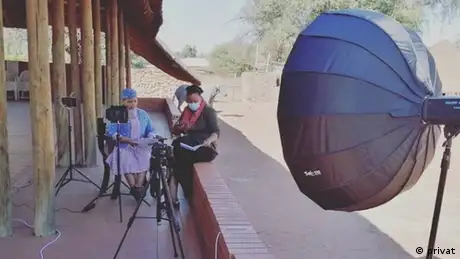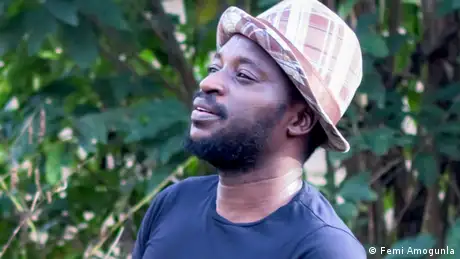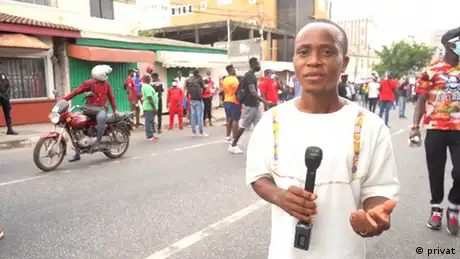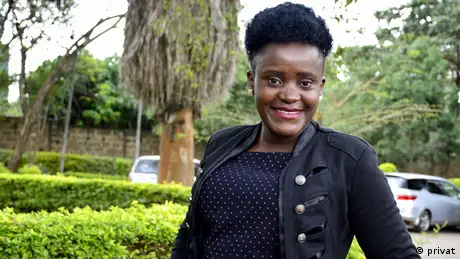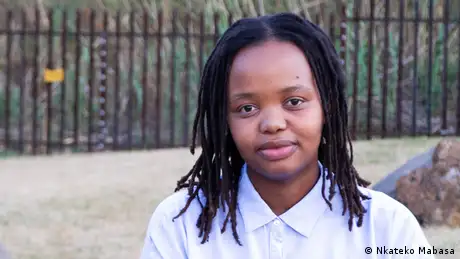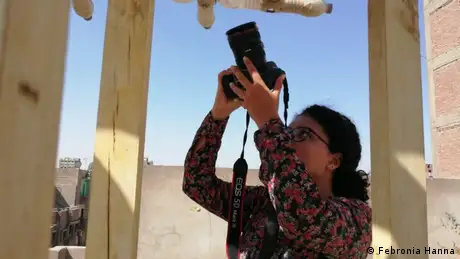Constructive Journalism
Constructive journalism in Lebanon looks at both problems and solutions
After a DW Akademie fellowship in constructive journalism, MJ Daoud is convinced that the reporting tool can engage and enthuse audiences. She urges colleagues to use the method, too.
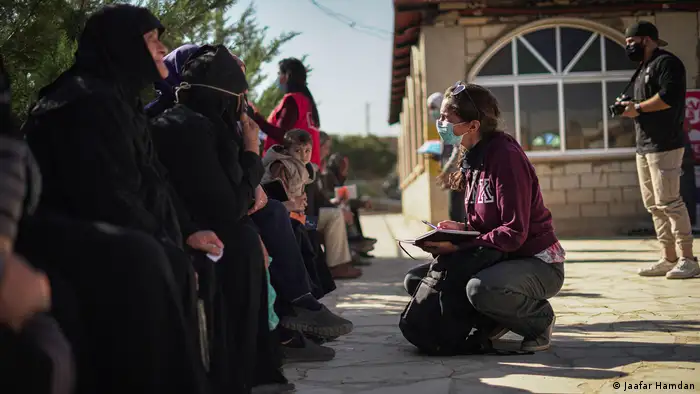
MJ Daoud, a multimedia journalist and 2021 DW Akademie Constructive Journalism fellow, conducted interviews in Arsal, Lebanon, where Medair's VaxBuses offered COVID vaccinations in coordination with the country's Ministry of Public Health (MoPH) and with funding from EU Humanitarian Aid. Daoud's reporting focused on solutions during the COVID pandemic.
Although MJ Daoud’s career started in international marketing, the idea of working in journalism eventually took root as she grew disillusioned with her work. At the same time, she thought that with her corporate experience, she could help explain complex issues to lay readers, particularly when it comes to public monies and malfeasance.
"I like complicated economic stories," she said. "But I also like how these stories impact people."
And yet over time, Daoud had a feeling that explaining problems wasn’t enough, that readers, viewers and listeners also yearned for solutions. She eventually realized she wasn’t alone. When she heard about the DW Akademie Fellowships, she recognized a valuable tool, one which could engage an audience and that would help her to look critically at potential solutions. The Fellowship, for which Daoud was selected in 2021, consisted of five training modules over 20 days and included mentoring during a constructive story project.
Advancing problem-solving
Now, Daoud works as an editor at L’Orient Today, one of Lebanon’s leading online publications and the sister publication of a French-language newspaper. There, she has the power to assign and follow through on stories that may seem intractable but can – and, she said, should – illustrate problem-solving.
After the Fellowship, Daoud was selected, along with four other Constructive Journalism Fellows among 14, as a DW Akademie Constructive Journalism Ambassador, whereby she trained L’Orient Today journalists, commissioned constructive journalism stories - in particular those addressing Lebanon’s most persistent economic and environmental problems – and edited them, too.
Her educational and professional background make her a strong candidate for the work she is now doing but there were initial doubts. When she told her mother that she was planning to change fields and to try and make it as a reporter, her mother was reluctant – both because of potential dangers and financial insecurity. But Daoud eventually interned at a business magazine in France, and was then offered a job there where she continued for four years, focusing on Lebanon’s economy.
"Everyone was frustrated"
She would eventually earn her master's degree in journalism from Columbia University in New York in 2014 and return to Lebanon to cover the country’s news.
In 2015, a trash crisis dominated Lebanon’s headlines. Daoud observed that Lebanon’s media weren’t helping matters.
"The state wasn’t solving the crisis, and the media are controlled mostly by political parties," she said. "Everyone was frustrated."
So, together with a fellow reporter, Daoud set about starting their own media company. Costs were prohibitive, so they took to Instagram and Facebook and started posting images and information that, she said, had the power to change the narrative.
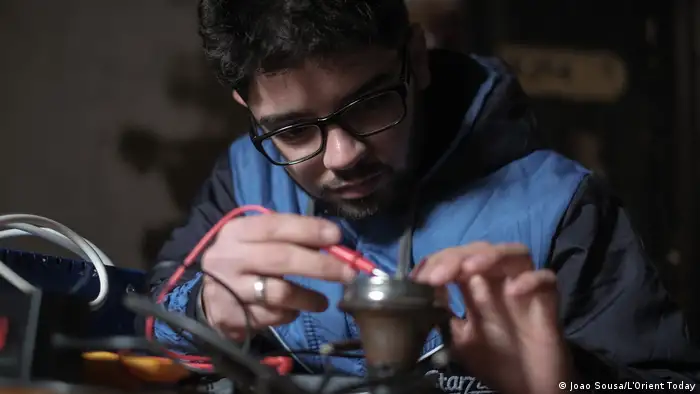
Journalist MJ Daoud concentrates on solutions to some of Lebanon's most difficult economic and environmental problems. Here, Muhammad al-Sabsabi works on a makeshift wind turbine that can be used to generate clean energy.
"We wrote about recycling and people creating food banks," she recalled. "Maybe I was at an advantage because I have friends who are entrepreneurs and who think like that. I saw a whole entrepreneurship ecosystem taking off."
A natural calling
As such, the DW Akademie fellowship felt to be a natural calling.
"During the fellowship, we had these incredible debates about solutions,” she recalled. “The idea was that you can’t solve everything. But, hey, let’s at least start."
Last month, she guided and edited a story about the ongoing threat of wildfires in northern Lebanon – bad news, to be sure – but also how hikers and conservationists are volunteering to learn how to fight them.
Another story featured the Palmyra Hotel in the ancient city of Baalbeck, where once the likes of Nina Simone and Jean Cocteau lounged and dined. But now with electricity cuts and the bad luck of location – on the Syrian border – it would seem the Palmyra might as well just call it quits. Instead, Daoud encouraged her reporter to look at what was working. Solar energy panels, the reporter found, had helped. Also, the guests who were showing up were in search of meaningful travel, which the Palmyra can certainly provide.
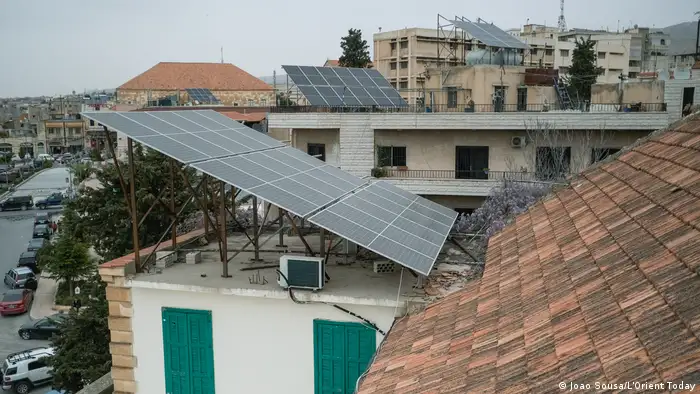
Solar panels on the roof of the Palmyra Hotel, in Baalbeck, Lebanon. As an editor at L'Orient Today, MJ Daoud can guide stories to focus on solutions, like how the Palmyra Hotel transformed its business model during and after the COVID pandemic to both attract more guests and cut its energy costs.
"There’s still a lot of resistance to constructive journalism," acknowledged Daoud, citing two reasons and noting that there are cultural and generational influences on how reporters and editors feel about it.
News about solutions
"First, change is hard, going from traditional reporting to going the extra mile," she explained. "And that’s the second reason: it’s more work. You need management on board with you. There’s also this ideological resistance from some people that if you talk about solutions, you’re not holding the government accountable. My response is that if you’re waiting for the state, you’ll be waiting a long time."
Her business and entrepreneurial background lead her to look at reporting differently, she said, and to understand how the average reader is eager for substantive news about solutions. Moreover, constructive journalism is a tool that can help anyone with everyday problem-solving.
"In every crisis, you have people doing stuff to improve matters," she said. "It doesn’t surprise me that people avoid news. Even I, who work in the news, tend to avoid the news. But constructive journalism helps and it’s made me better at what I do – and not only that, it’s helped in other ways: how I listen, in decision-making, how I run meetings and participate in debates. I got a lot of that from my DW Akademie Fellowship."
The Constructive Journalism Fellowship and the Ambassador for Constructive Journalism Fellowship were part of the Global Crisis Initiatives for Transparency and Freedom of Expression: Crisis resilience in the pandemic (2021/2022) and Media Resilience during Crisis (2022/2023) by DW Akademie and the German Federal Ministry of Economic Cooperation and Development (BMZ).
DW recommends
WWW links
- Date 16.08.2023
- Author Elizabeth Zach
- Feedback: Send us your feedback.
- Print Print this page
- Permalink https://p.dw.com/p/4V2fH
- Date 16.08.2023
- Author Elizabeth Zach
- Send us your feedback.
- Print Print this page
- Permalink https://p.dw.com/p/4V2fH

